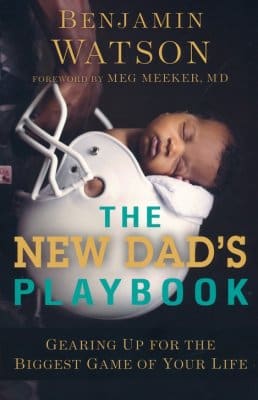Is there really forgiveness for someone who contributed to such a horrendous practice as the transatlantic slave trade?
After being caught and beaten for desertion, the young rebel John Newton joined the African slave trade instead of returning to the British Royal Army. He took a job on a slave ship.
This is the same John Newton who wrote the words of the cherished hymn, “Amazing Grace.” Peculiarly, even after writing those resonant words, Newton continued to participate in the buying, selling, and transoceanic shipment of African people.
John Newton’s timeless hymn captures his experience of what he calls the amazing grace of God—God’s immeasurable kindness towards undeserving people.
The Story Behind “Amazing Grace”
Can God forgive our most dreadful offenses? Newton would tell you that God can, and he does more than that.
Newton experienced God’s grace in at least two important ways. First, Newton experienced the saving grace of God in his initial turn from a life of rebellion to a life of following Jesus—through receiving Jesus’ forgiveness. Second, Newton experienced the transforming grace of God in his increasing denial of sin and embrace of holiness.
“A Wretch, Like Me”
Newton’s mother encouraged him to read the Bible at a young age and hoped that her son would know Jesus, but she died when Newton was only seven years old. After this, Newton tagged along with his father, a Navy captain, for some years before embracing adulthood. He became known even to other sailors as a rebellious and crude young man.
Once, while visiting friends out of town, officials captured Newton and forced him to join the Royal Army. He had no desire to live the disciplined life of a royal soldier, so he eventually escaped. Shortly after, the Royal Army found him and severely punished him for leaving.
Newton convinced the Royal Army to end his service and let him take up a position on a slave ship. But his peers on the slave ship despised him and left him in West Africa, where he was treated like a slave until his rescue.
“How Precious Did That Grace Appear”
On his rescue voyage back to England, Newton’s ship encountered a storm and almost sank. In the face of death, Newton felt the first pangs of guilt for his rebellious lifestyle.
The Bible’s words from Proverbs 1:24-27 came to his mind:
But since you refuse to listen when I call
and no one pays attention when I stretch out my hand,
since you disregard all my advice
and do not accept my rebuke,
I in turn will laugh when disaster strikes you;
I will mock when calamity overtakes you—
when calamity overtakes you like a storm,
when disaster sweeps over you like a whirlwind,
when distress and trouble overwhelm you.
(Proverbs 1:24-27 NIV)
Newton knew he deserved only death, and worse, from God. But God was merciful, and Newton survived the storm.
Newton knew God spared him, so he radically changed his ways. He gave up heavy drinking, gambling, profane language, and began to study the Bible intentionally. As Newton read and recalled the words of the Bible, God worked through his Word to change Newton’s heart and life.
“The Hour I First Believed”
John Newton first experienced amazing grace in his initial movement from rebellion against God to embracing the forgiveness that Jesus Christ offers. Newton accepted the kindness offered to him through Jesus’ life, death, and resurrection.
Prior to his change of heart, Newton, like every human being, was outside of the family of God. The Bible describes this state as being dead in trespasses and sins, following the course of the world, and living in the passions of our flesh (Ephesians 2:1-3).
The initial change that Newton experienced was God kindly choosing to work in him. God, because of his mercy and love, made Newton alive in Jesus Christ (Ephesians 2:4-5). Newton cried out to God for forgiveness and trusted in Jesus as his Savior and Lord.
Newton deserved only God’s judgment, but he received God’s mercy and forgiveness because Jesus Christ suffered and died in his place. Furthermore, the favor of God that Newton received was completely unearned—Jesus earned it for him through his perfect life (Ephesians 2:8-9)! That is the meaning of grace—unmerited kindness.
This initial movement is what the Bible describes as being called out of darkness and into the light (1 Peter 2:9).
Maybe you, like John Newton, know yourself to have a rebellious heart towards God. You don’t have to wait for a near-death experience to cry out like Newton, “Lord, have mercy!” You can accept God’s saving grace to you in Jesus Christ even now!
“I Once Was Lost… Was Blind”
Newton’s second experience of the amazing grace of God occurred more gradually than the first.
Though free from his former rebellious ways, even after writing the words of his most famous hymn, Newton kept supporting the trade of human lives. How could a person who had experienced such amazing grace, continue to do such evil?
Newton’s life puts on display God’s patience towards us, but also his persistence to rid us of sin. We read in the Bible,
No one who is born of God will continue to sin, because God’s seed remains in them; they cannot go on sinning, because they have been born of God. (1 John 3:9 NIV)
The Bible shows that after God works the initial change in a believer’s heart, that person begins building the habit of rejecting sin and embracing virtue (Colossians 3:1-17), all accomplished by God continuing to work in that person’s heart (Philippians 1:6).
After his initial change of heart, Newton grew uncomfortable with the practice of slavery, and his own role in the slave trade started sickening him. He eventually quit altogether and dedicated the rest of his life to the abolition of slavery in England.
“Twas Grace That Brought Me Safe Thus Far”
If you have already turned from rebellion against God to a life of obedience to Jesus, you might wonder why you sometimes continue to think, say, and do the wrong things. You might wonder why you’re still acting like a “wretch.”
Newton possibly picked up the word “wretch” from the Bible passage, Romans 7. There, Paul explains the struggle that many of us go through after we initially receive God’s saving grace.
We do wrong even though we know we shouldn’t, and we fail to do right even when we know that we should! Paul concludes:
Wretched man that I am! Who will deliver me from this body of death? Thanks be to God through Jesus Christ our Lord! (Romans 7:24-25 ESV)
Even after the initial change of heart, Jesus continues changing our thoughts, words, and actions to reflect his perfect character. The Bible describes this process as being transformed by the renewal of our minds (Romans 12), and being transformed into the image of Jesus from one degree of glory to another (2 Corinthians 3:18).
Newton captured this beautifully in his hymn: “T’was grace that brought me safe thus far, and grace will lead me home.”
“He Will My Shield and Portion Be as Long as Life Endures”
Although Newton contributed many years of his life to the practice of slavery, Jesus Christ sacrificed his life for Newton (Romans 5:8), saving and transforming Newton by his amazing grace.
Feeling the weight of his enormous sin, Newton wrote in 1788,
It will always be a subject of humiliating reflection to me, that I was once an active instrument in a business at which my heart now shudders.[1]
Newton spent his last years fighting for the abolition of slavery, and he lived to see the passing of the Slave Trade Act in 1807.
Amazing Grace for You
Whatever your past has looked like, and whatever sin you battle now, the amazing grace of God through the work of Jesus Christ is able to change your life.
Whether you have not yet experienced that initial movement from darkness to light, or you are struggling with sin even after that initial transformation, the solution is the same.
God meets us in our rebellion and calls us to be his children, saving us by grace. He also changes our hearts and lives so that we look more like Jesus each day, transforming us by grace. Ask him to do this for you. This is the grace of God, and it is amazing indeed.
. . .
Source
[1] Steve Turner, Amazing Grace: The Story of America’s Most Beloved Song (New York: Ecco, 2002), 91.







